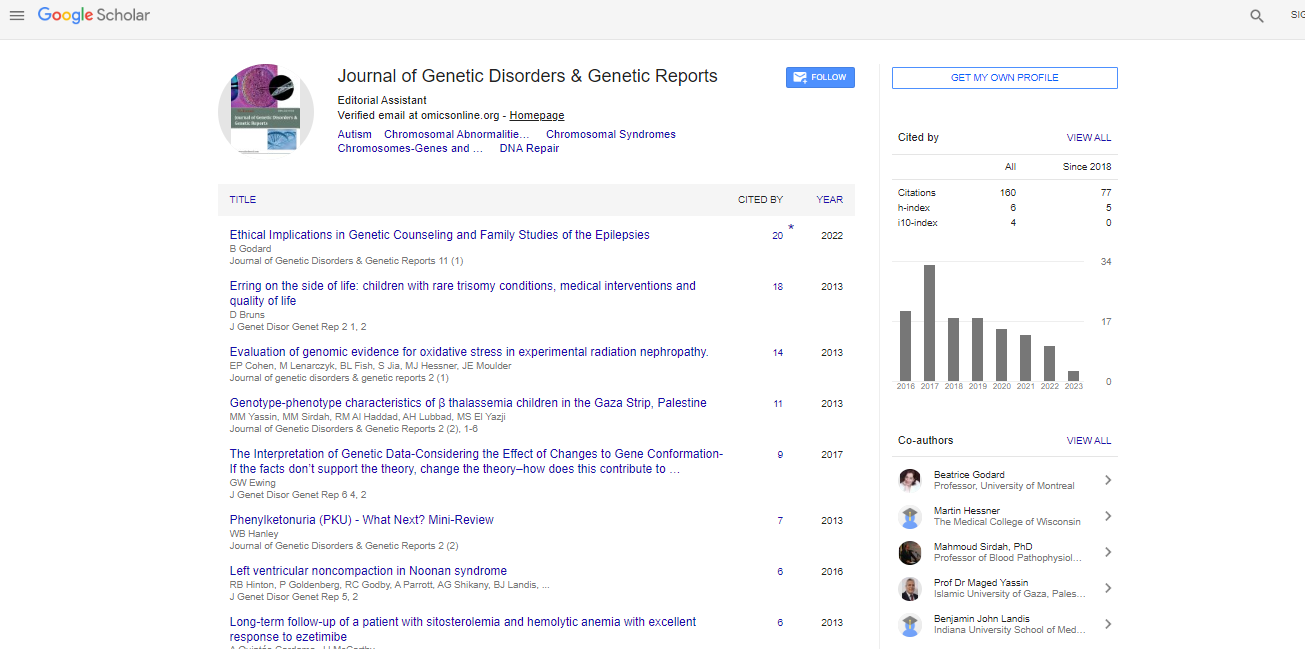A common spice prevents liver cancer lesions: Bioinformatics and network analyses
Amr Amin
United Arab Emirates University, UAE
: J Genet Disor Genet Rep
Abstract
The multi-kinase inhibitor, sorafenib, remains for a decade now the first and only systemic therapy for the treatment of Hepatocellular Carcinoma (HCC). Thus, a novel approach against HCC is essential for a better therapeutic outcome. The aims of this study is to assess the chemo-preventive action of Saffron’s main biomolecule, crocin, against chemically-induced liver cancer in rats and to explore the mechanisms by which crocin employs its anti-tumor effects. We provide a network analysis of differentially expressed genes in tissues of animals pre-treated with crocin in comparison to induced-HCC animals’ tissues. To further support our results, we assessed the effects of crocin on HepG2 cells viability by treating them with various concentration of crocin; in addition, effects of crocin on cell cycle distribution of HepG2 cells were investigated. Network analysis identified NF-kB as a potential regulatory hub and therefore, a candidate therapeutic drug target.
Biography
Amr Amin has completed his PhD at University of Illinois at Chicago and received a Post-Doctoral training in the field of Molecular Genetics at University of Pennsylvania School of Medicine. He started his academic career at UAE University where he serves currently as a full Professor of Cell and Molecular Biology. His research focuses on ways to control cancer, particularly liver cancer. He has published many research articles, reviews and serves as ad hoc Reviewer and as an Editorial Member of many specialized peer-reviewed journals. He is also a member of many specialized societies and the sole recipient of many national and international scientific awards; Khalifa Award for Research being the most recent.
E-mail: a.amin@uaeu.ac.ae
 Spanish
Spanish  Chinese
Chinese  Russian
Russian  German
German  French
French  Japanese
Japanese  Portuguese
Portuguese  Hindi
Hindi 



